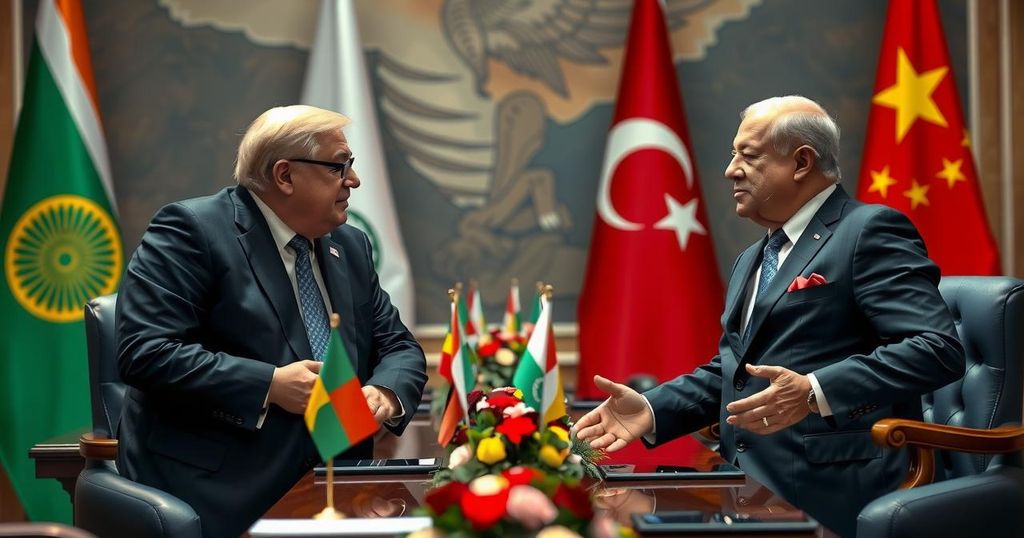Prime Minister Narendra Modi and Chinese President Xi Jinping held a bilateral meeting at the BRICS Summit in Russia, their first encounter in five years after previous conflicts along the border. This meeting follows a recent agreement on patrolling at the LAC and highlights a commitment to improving diplomatic relations. Modi emphasized dialogue over conflict and highlighted the need for collaboration against terrorism and cyber threats.
During the recent BRICS Summit held in Russia, Prime Minister Narendra Modi and Chinese President Xi Jinping conducted a significant bilateral meeting, marking the first time the two leaders have convened in five years. Their last structured dialogue took place in October 2019, just prior to the onset of the border conflict in eastern Ladakh. Notably, this meeting occurred merely two days after India and China reached a new agreement concerning patrol operations along the Line of Actual Control (LAC), which has historically been a contentious area between the two nations. This latest agreement is a product of extensive discussions at both military and diplomatic levels, indicating a potential thaw in relations following a series of recent high-level meetings. For instance, Indian External Affairs Minister S. Jaishankar previously met with his Chinese counterpart Wang Yi during two events in Kazakhstan and Laos earlier this summer, while National Security Adviser Ajit Doval also held talks with Wang on the sidelines of a BRICS-related meeting in St Petersburg this September. In his address at the BRICS Summit prior to the meeting, Prime Minister Modi emphasized India’s commitment to dialogue over military confrontation, stating, “We support dialogue and diplomacy, not war.” He advocated for collaborative efforts to combat terrorism and stressed the importance of international cooperation in addressing radicalization and terrorism financing. Modi’s statements echoed a call for BRICS countries to unite against these common threats and to work towards establishing global regulations on issues such as cybersecurity and artificial intelligence.
The bilateral meeting between Prime Minister Modi and President Xi is set against the backdrop of a prolonged period of tension between India and China, particularly following the 2019 border standoff in Eastern Ladakh. The two nations have been engaged in a series of negotiations aimed at maintaining peace along the disputed LAC. Recent developments, including the agreement on patrolling, suggest a renewed effort towards dialogue and diplomacy between the two nations. The BRICS Summit provided a platform for these leaders to initiate a dialogue aimed at stabilizing their historically fraught relationship while addressing broader geopolitical concerns such as terrorism and global cybersecurity.
The recent meeting between Prime Minister Narendra Modi and President Xi Jinping during the BRICS Summit signifies a critical step towards re-establishing dialogue between India and China after years of tension, particularly surrounding border issues. The timely agreement on patrolling along the LAC illustrates a willingness to find common ground. Furthermore, Prime Minister Modi’s advocacy for dialogue instead of war reinforces India’s stance on diplomacy in resolving international conflicts. As both leaders navigate the complexities of their relationship, their collaboration in combating terrorism and addressing cybersecurity will be imperative for future regional stability.
Original Source: www.hindustantimes.com







